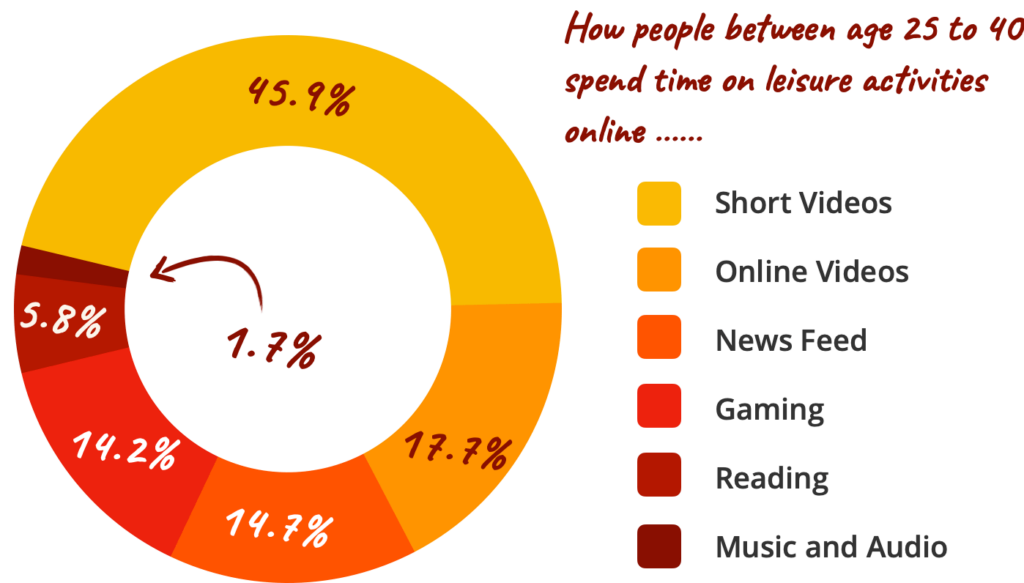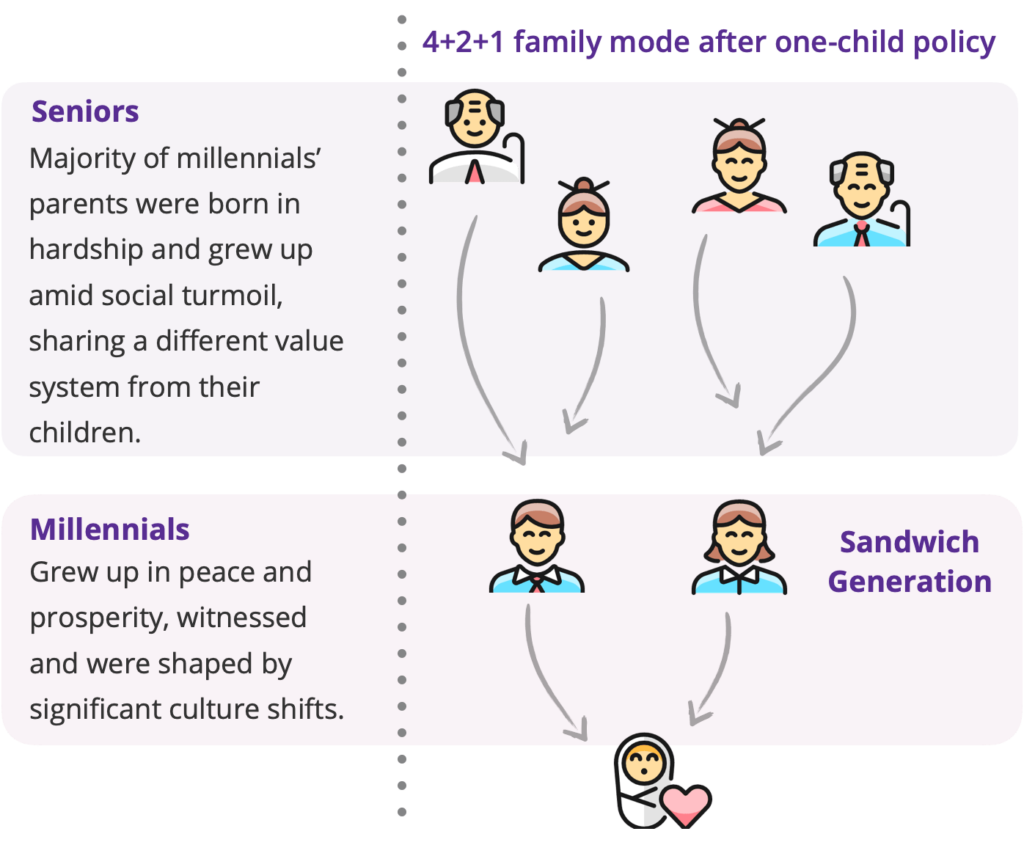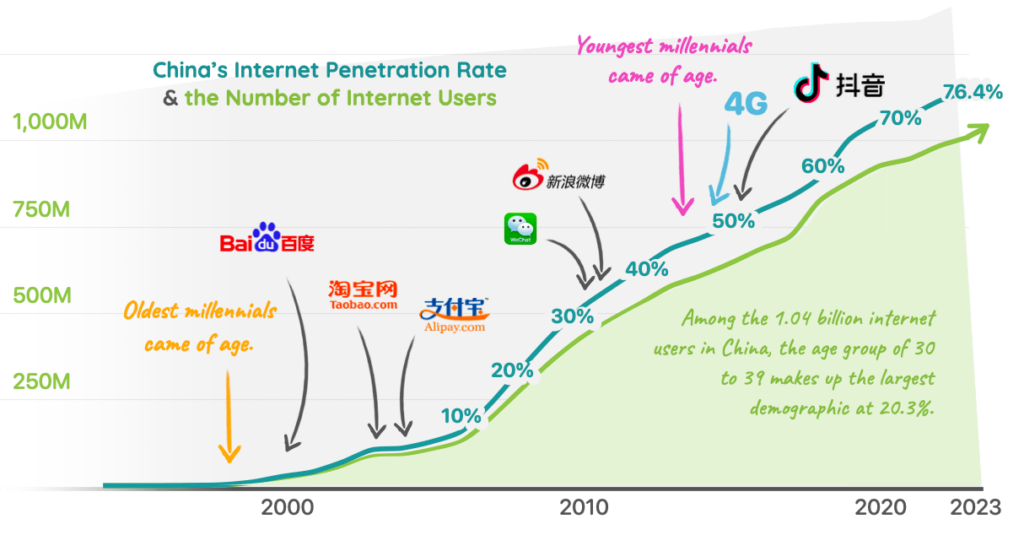Chinese millennials, born between 1981 and 1995, came of age during a systematic transformation of China’s social fabric coupled with rapid economic growth. Today, they wield significant economic influence, emerging as major drivers of the entire economy, especially in their penchant for technology purchases, outspending other consumer groups.
Chinese Millennials is One of the Most Influential Consumer Groups in China
The population of millennials in China reached 320 million in 2023, making up 22% of China’s total population [S] — this number is 3.5 times the number of millennials in North America. Chinese millennials account for 28% [S] of the total income among active consumers in China.
Chinese millennials are the top spenders in most consumer categories, second only to the older generation (46 to 65 years old) who have successfully accumulated their wealth and contribute to more than 50% of the nation’s consumption power. [S] Undoubtedly, millennials will follow suit.
USEFUL DEFINITION:
Active consumers
Active Consumers make up around 80% of the entire China population. This excludes generation Alpha (born after 2010) who are yet to come of age and lack of buying power, as well as conservative seniors (born before 1950) who grew up in extreme poverty and are reluctant to spend.
Chinese Millennials are Deeply Engaged in Online Activities and Spend Generously
Consumers in their late 20s and 30s, who live in 3rd tier or higher cities with CNY 1000+ online spending power per month, spend 30 hours more online than the average user [S]. They spend heavily on electrics — more than 45% of customers for various products with high unit prices (including high-end handsets, automotive [S], smart home, etc) are millennials, the majority being “post-80s” [S].

Evolution of the Millennial Generation in China
Great generational gap
Millennials and their parents have different upbringings as a result of drastic social changes. Economic growth accelerated culture and value shifts.
Diversified life choices
Being the only child in the family, millennials received full attention and focused educational resources in the fast-growing economy. They grew up to be self-aware and individualistic, making uniquely different life choices from their parents which set them on diverse life trajectories.
Shouldering pressure from the economy and family
Millennials are essential workers for the economy and are responsible for raising the young while supporting the elderly. A task made heavier by the fact that they are often the only child for four grandparents.

Midlife Crisis Starts at Age 35 in China
It’s an unspoken norm in China that job candidates over the age of 35 are treated with less favor. From start-ups to government entities, 35 seems to be the unanimous upper limit. Even the ideal mate in the marriage market should be younger than this threshold. Chinese Millennials are unfortunately caught in this race with the clock ticking and face challenges.
Chinese Millennials Witnessed and Fully Adapted to the Rise of China Social Ecosystem
The infrastructure of the social media ecosystem was built during the time millennials came of age. Meanwhile, a stable and affluent economic environment enabled them to pursue diverse lifestyles tailored to their individual needs. Brands must understand their unique life stages to build better connections.
70% of Chinese millennials consider social media as their main source of information, and they are accustomed to discovering and sharing information through online channels. In 2023, 55.8% of e-commerce users in China were between 25 to 44 years old, of whom the majority are millennials (27-42 years old). They are the main contributors to China’s e-commerce growth which is estimated at 12.23% per year between 2023 and 2027. [S]

The majority of millennials were not born into a world where the Internet and social media were a ubiquitous part of everyday life. Instead of shaping the way they see the world as it did for Generation Z, social serves as a channel for millennials to search for information more efficiently, fulfill their needs for communication, emotional expression and release, and to improve the overall quality of their adult life.
If you want to learn more about how can brands attract Chinese millennials on China social media platforms, feel free to download our guide “Social Media Marketing to Millennials in China”.







